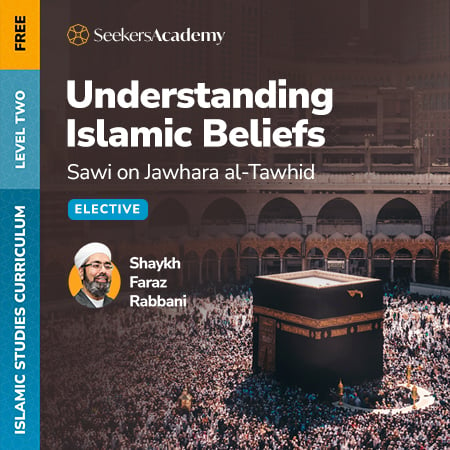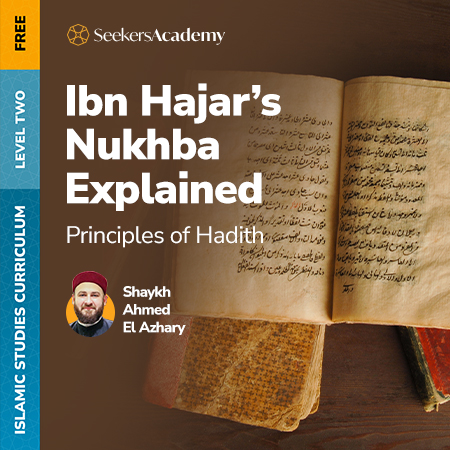
This Level Two class explores intermediate Islamic beliefs through a close study of Imam Sawi’s commentary on Imam Laqqani’s Jawhara al-Tawhid — a poem that covers mainstream Islamic beliefs about Allah Most High, His messengers (peace be upon them), and the Hereafter. Imam Sawi unpacks the expressions of the poem, making accessible the beliefs that we are all obligated to affirm while keeping in context the spirituality that is at the heart of our religion.
The study of this text is an essential gateway into deeper studies of Islamic Theology. Students will be introduced to key concepts, terminology, and definitions of this science, preparing them for further study. Students will learn what is necessary, possible, and inconceivable to affirm for Allah Most High, His messengers (peace be upon them), and key beliefs about the Hereafter.
This class is for students of knowledge with the ability to read and understand classical Arabic and prior study of Islamic beliefs, worship, and practical spirituality.
- Teacher: Shaykh Faraz Rabbani
Imam Laqqani’s poem Jawhara al-Tawhid has been broadly accepted by the scholarly community as a summary work representative of mainstream Islamic beliefs. In the hundreds of years that have passed since its authorship, this work has attracted dozens of commentaries and super-commentaries.
Imam Sawi’s commentary is an excellent introductory work on science and is widely taught. In it, he unpacks the terse expressions of the poem and explains technical discussions with essential context as to how these beliefs relate to our relationship with Allah Most High.
- This course is for adults
- It is particularly beneficial for students of knowledge
- It is a Two elective course. In order to successfully complete this course, students should first take What Muslims Believe and Why: Dardir's Kharida al-Bahiyya
- This course can also be taken by anyone who is interested in learning more about mainstream Islamic beliefs.
- Understand the key concepts, terminology, and definitions of Islamic Beliefs
- Explain what is necessary, possible, and absurd to affirm for Allah Most High
- Explain what is necessary, possible, and absurd to affirm for His messengers (peace be upon them).
- Understand the key transmitted beliefs of the Hereafter


